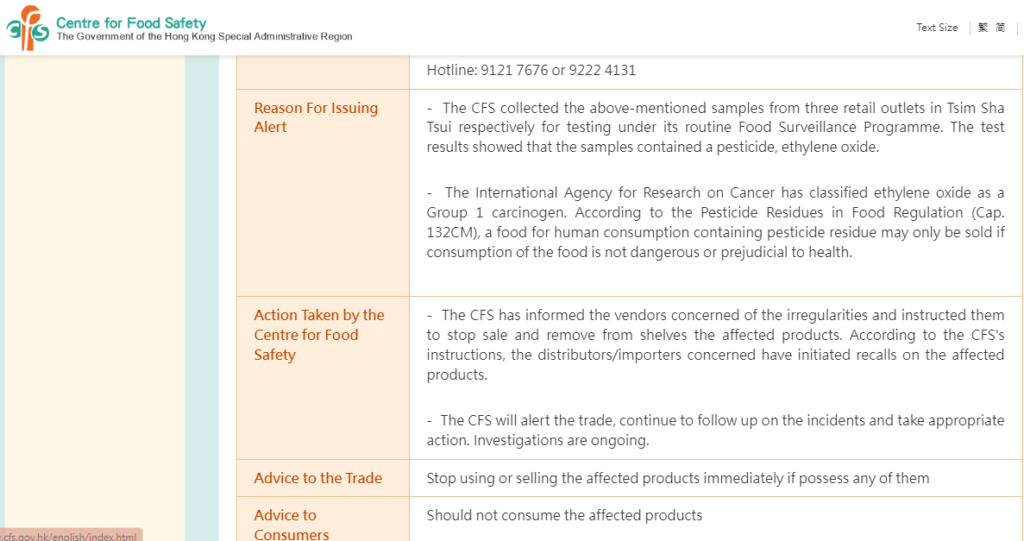Health Alert: Food regulators in Hong Kong and Singapore have warned people against using four products of two major spice brands (three from MDH and one from Everest). They contain high amounts of ethylene oxide, which can cause fatal diseases like cancer. The International Agency for Research on Cancer has classified ethylene oxide as a “Group 1 carcinogen”
In a statement posted on its website on April 5, Hong Kong’s food regulatory authority, the Centre for Food Safety (CFS), said three of MDH’s spice products – Madras Curry Powder, Sambar Masala and Curry Powder Mixed Masala – as well as Everest’s Fish Curry Masala contained “the pesticide, ethylene oxide”.
Both MDH and Everest Foods are yet to comment on the claims of the food regulators.
As part of its routine inspection, CFS took the products from three retail stores in Hong Kong. “The test results showed that the samples contained the pesticide, ethylene oxide,” a CFS spokesperson said. The regulator instructed the sellers to “stop selling and remove the products.” It said a recall of the products has been initiated.
A CFS spokesperson said, “Food containing pesticides may only be sold for human consumption if the consumption of the food is not hazardous or prejudicial to health. This carries a maximum penalty of $50,000 and six months’ imprisonment if convicted.” The CFS said “investigations are ongoing” and “appropriate action” may be taken.


Meanwhile, the Singapore Food Agency (SFA) also ordered the recall of Everest Fish Curry Masala due to the amount of ethylene oxide “exceeding the prescribed limit”. The SFA said, “Although there is no immediate danger from eating foods with low levels of ethylene oxide, prolonged exposure may cause health problems. It should be used as little as possible.”
The agency also advised people who bought the products “not to consume it.” It said those who have concerns about their health after consumption should “seek advice from a doctor.”
According to the U.S. Environmental Protection Agency, “Ethylene oxide causes cancer in humans.”


